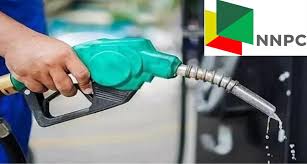Nigeria’s petroleum importers may soon be forced out of business if they fail to adapt to the country’s emerging domestic refining landscape, according to the Crude Oil Refinery Owners Association of Nigeria (CORAN).
The association issued this warning in response to growing tensions over the Federal Government’s decision to reinstate the controversial naira-for-crude oil exchange policy, a move that has faced stiff opposition from major fuel importers.
CORAN’s Publicity Secretary, Eche Idoko, said that the pushback from importers, particularly the Depot and Petroleum Products Marketers Association of Nigeria (DAPPMAN), stems from fears that the local refining surge championed by the likes of the Dangote refinery would render their import-based operations obsolete.
Idoko dismissed DAPPMAN’s argument that the sale of crude oil in naira threatens economic stability, describing it as a strategic ploy by depot owners to maintain their grip on the petroleum supply chain. “Depot owners and importers are understandably resisting change.
“They’ve built an entire business model around importing fuel, and functioning local refineries challenge their relevance.
“It’s like a man who stores water in drums; he wouldn’t want the pipes to start running,” he said.
Despite appeals to adapt and evolve alongside Nigeria’s budding refining industry, Idoko said importers remain obstinate, clinging to a system that is rapidly becoming outdated.
“We’ve urged them to rethink their strategy and stay relevant in the refining era, but they remain fixated on fuel importation. If they persist, they’ll find themselves edged out entirely,” he warned.
He also accused certain stakeholders of deliberately attempting to sabotage the success of local refineries by opposing policies like the naira-for-crude scheme.
According to him, these opponents were comfortable profiting from substandard imports and are now struggling with the new reality where domestically refined products are cheaper and cleaner.
Idoko noted that prior to the suspension of the naira-for-crude deal in March, the retail price of petrol had fallen from around N1,100 to N860 per litre, thanks to Dangote refinery’s local supply.
He argued that if the deal had continued uninterrupted, prices would have dropped further due to falling global crude prices.
“Middlemen who act as agents and offer nothing, but connections between foreign traders and Nigerian buyers were driving up prices.
“They take no financial risks, invest nothing, yet reap huge profits. This model is unsustainable,” he added.
He praised the Federal Government for reinstating the naira-for-crude exchange, crediting it with stabilising prices and protecting consumers from inflated costs.
“It’s unwise to believe that a few powerful individuals can hold the country hostage just to maintain their monopoly on importing low-quality fuel,” he said.
Under the naira-for-crude arrangement, crude is sold to local refineries in Nigerian currency, facilitating easier access and supporting price stability.
The move has particularly benefited the Dangote refinery, which continued to slash petrol prices following the policy’s reintroduction.
While many Nigerians welcomed the lower pump prices, importers expressed frustration.
Retailers were forced to cut their own prices to compete, often below their importation costs, leading to significant financial losses.
It was gathered that fuel importers lost an estimated N2.5 billion daily in March, totalling around N76.5 billion in that month alone.
DAPPMAN has since argued that the naira-for-crude model gives an unfair edge to local refiners like Dangote and poses broader economic risks.
Its Executive Secretary, Olufemi Adewole, claimed the policy could undermine foreign exchange stability and discourage foreign investment, pointing out that global oil markets operate in US dollars due to the currency’s stability and universal acceptance.
“The continued use of naira for crude transactions could alienate international trading partners and investors, who prefer dollar-denominated deals for predictability,” Adewole stated.
Nevertheless, the Federal Government has overruled these concerns and confirmed that the naira-for-crude policy will remain in place indefinitely, signalling strong official backing for Nigeria’s refining future and a shift away from dependency on fuel imports.


